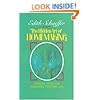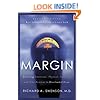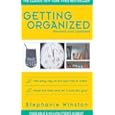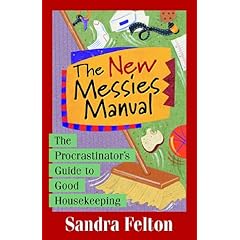
E-journal April 22, 2010 |
View past ejournals HERE>> Sign up for our newsletter below. Pinky and the Brain Redux In a previous post I shared about Pinky and the Brain, two genetically altered lab mice featured in a Steven Spielberg cartoon from the 90's. Brain was a genius obsessed with taking over the world and Pinky was Brain's insane cage-mate who had an uncanny knack of thwarting Brain's masterplan each time he was on the brink of world domination. For some reason, those Pinky and the Brain episodes reminded me a lot of what it was like to home school a houseful of rambunctious boys and how it was absolute chaos. My every plan to take over MY world seemed to be continually thwarted. I thought I was Brain, but actually, my life was more like Pinky. My days usually corresponded to a famous Pinky and the Brain scene where Pinky is on the exercise wheel and Brain asks him to help with the current world domination plot. Pinky’s reply is, “Just a minute, Brain. I think I’m finally getting somewhere!” That’s what my days were like—running on a hamster wheel thinking I was finally getting somewhere. So I promised to share some of the tips that helped me. In our last issue, I shared the first two of four rules that have helped me get "off the wheel" and finally get somewhere. The Four Rules to Getting Off the Wheel The first two rules are discussed in a previous issue. You can READ THEM HERE. They are: Rule #1. Be "80/20" and "Margin" Conscious Rule #2. Everything you own, do or are involved in should have value to you. Rule #3: Focus on one manageable 20% thing at a time. Multitasking is supposed to help you get more things done quickly, but when you try to do 19 things at once, everything ends up incomplete. We had a young man with Asperger’s Syndrome live with us for awhile and AS people are incredibly disrupted by change. So if we wanted to change something in his environment (like rearrange the furniture in the living room) or in his routine, we could change only one thing (like where the couch was), then give him time to adjust to that one change before we made another. His resistance to change was extreme, but I think to some extent that change is stressful to everyone. So if we try to change too many things about our life at once, we just heap more stress upon ourselves. Ask yourself, “What is the one change I could make now that would have the most impact on what I want my life to be like?” Take baby steps and eventually you will get where you want to go. Rule #4: Complete significant incompletions. Anything left unfinished or unresolved becomes a drain on your physical, emotional, mental and spiritual energy. The best way I can explain what incompletions do to you is to tell you the story of a Cocker Spaniel named Penny we had when I was growing up. Penny had always been very healthy, but suddenly began showing signs of lameness in his hind legs. Within a week, he was paralyzed from the hips down. When we took him to the vet, we discovered that Penny’s hind legs were covered with thousands of tiny seed ticks. One tick wouldn’t have sucked enough life out of him to hurt him. Even a hundred ticks wouldn’t. But thousands did. The vet got rid of the ticks and Penny made a full recovery. That gruesome story illustrates what incompletions do to us energy-wise. A few incompletions might not seem to matter, but the more we have in our lives and the more significant they are, the more paralyzed our energy becomes. Life coach Chris Lucerne states, “Incompletions suck the energy right out of you, as they are constantly playing and nagging in the back of your mind every minute, every hour, every day. They are the white noise of mental chatter, the constant barrage of shoulds, the weighty feeling of overwhelm…. And, if that weren’t enough, they absolutely stand in the way of you being able to manifest what you want in your life....” Incompletions come in three categories: (1) Incompletions related to your environment; (2) Incompletions related to other people’s behavior; and (3) Incompletions related to yourself. Incompletions in your environment are those things that are untidy or disorganized or that need to be cleaned, repaired, organized, discarded, redecorated, or dealt with in some way. This includes clutter, stacks of papers to file, taxes to prepare, letters that should have been written, overdue bills, cars that need oil changes or new tires or a brake job, and the thousands of other tasks that we keep putting off getting done. What in your environment (home, auto, office, etc.) causes you to feel irritated or tired when you think about it because you know you need to finish it? We’ve already discussed how some people can be “energy vampires” who literally suck the life energy out of us. Maybe they are consistently late, don’t follow through on what they tell you so you have to expend energy readjusting your time, are negative and disrespectful of you, whine and complain, or constantly spew out stories of their drama all overyou. Or maybe someone has offended you deeply and you need to resolve things between the two of you. You probably already know you need to pull away from those relationships or make amends, but keep putting it off and putting up with the energy drain. This “putting it off” is an incompletion that perpetuates relational clutter in your life. I have a friend who had a falling out with a relative over something that wasn’t her fault and every time the family got together my friend would try to avoid that relative. Her son wisely told her, “Mom, even if you didn’t do it, it only takes 5 minutes to give an apology, but avoiding her will take a lifetime.” There are several forms of incompletions related to yourself. 1. Habits: What do you put up with from yourself? What habits do you wish you could change? What do you do that you know you need to stop doing? 2. Broken Trust: I once had someone pray over me who told me, “You have broken trust with yourself.” It took me a while to figure out what he meant. Essentially, I had caused me to distrust myself because I had done things that were not in alignment with who I was as a person. Some of the ways I had broken trust with myself were: (1) I had neglected myself and my own needs for the needs of others; (2) I had done things that I didn’t approve of myself doing; (3) I had failed to do things I promised myself or someone else I would do; (4) I had pretended to be the kind of person that I wasn’t; and (5) I had lied to myself and to others by withholding important information or feelings from them. In other words, the message I had sent to myself over and over was, “I can’t trust myself.” 3. Regrets and Resentments: Any significant regrets or resentments that you are holding onto keep you a prisoner to the past and drain your energy to live for today. Everyone has regrets for the way they have lived their lives and everyone has been hurt by other people. But holding on to those regrets and resentments just keeps us mired in past pain. We need to learn to let them go—not only to forgive others, but also to forgive ourselves. Anything not finished in the physical, mental, emotional and spiritual realms clutters your psyche and bogs you down. Why do we put up with so many incompletions in our lives? I'm not sure, but I have a hunch that we like "open threads." They give us a sense of connection and power. I'll try to explain what I mean. I had a handyman once named Michael and he liked to leave a lot of what I call "open threads." He would bring several projects just to the verge of completion, then start another and leave it undone too. Because he had actually done fine work toward completing the projects, it put me in the Catch 22 situation of being forced to praise him and pay him for what he had done but being extremely dissatisfied with the job because having it 95% done was a huge inconvenience and aggravation. For example, he remodeled a bathroom and did a beautiful job on the construction, the laminate flooring, the louvered closet doors, the woodwork, the fixture installation, etc. but he left the molding and the painting partially finished. The bathroom was completely useable, but every time I went into it, I would see the unfinished molding and paint and it would aggravate me. This went on for months until finally I realized that Michael used the "open threads" to be connected to me in some way. I'm not exactly sure how it worked for him, but it gave him a sense of power over me and it also gave him a sense of connection to me. When I looked deeper, I realized that Michael liked to keep 3 "open threads" going at all times. If there were ever more than three, he would finish something so he could bring the open threads down to his manageable number of 3. Another reason we like "open threads" is that we actually have a fear of endings. There's something final and depressing about them. I've noticed that I tend to be able to go gung-ho at a project until it is about 90% finished, then I have a really, really hard time finishing that last 10%. For example, I have been trying for months to get my garage uncluttered and organized. I finally reached a point where I could face it and I went at it full steam for about a week. I got everything 90% done, then my energy faded and it was like torture to keep working on it. It didn't make any sense, because I was only a few hours away from being finished. But what remained was the last, little niggly things that I didn't know what to do with. Should I keep them? Donate them to Goodwill? Toss them? Somehow, having to make that decision about a stack of things in the corner of the garage became overwhelming, so I stopped and haven't been able to face them yet. I looked around me and realized I do the same thing with everything. My desk is neat except for that stack of papers in the corner that needs to be sorted and filed. My kitchen is orderly except for that one counter. My living and dining room looks pretty good except for one area that is continually cluttered. What's with that? There must be some emotional attachment to incompletion, some residual hoarder in me that makes me stop just short of finishing the job, some aversion to endings and closure. I'm still working on figuring that out. Disclaimer Well, that wraps up the four rules I use to try and get off the wheel. I know these articles tend to sound like I've got it all together. Nothing could be farther from the truth. It's only by God's grace that I am a fairly sane woman today, so I sometimes feel hypocritical when I'm writing. And the greatest thing of all is that no matter how frazzled, cluttered, or chaotic my attempts may be to home school and wear the many different hats of mother, wife, homemaker, teacher, business owner, chaffeur, and person who generally is relied on to catch everything that falls through the cracks, I have help. Until next time.... Ellyn Helpful resources for the chaotic, cluttered and overwhelmed:
The Overload Syndrome by Dr. Richard Swenson. This book is written like a “prescription” for overloaded lives. Through humor and a great deal of common sense, Swenson shows how you can carve out margin in four key areas of your life: emotional, physical, time and financial. By becoming Goal-Focused and God-Focused, you can unplug and eliminate a large portion of the stress in your life. This book can truly change your life if you follow its “prescriptions” for moving from a life of overload to a life like God intended it to be. The 80/20 Principle, Living the 80/20 Way, and The 80/20 Individual by Richard Koch. Each of these books approaches the 80/20 Principle from a slightly different slant, but all three of them teach you ways to narrow down the 20% of people, interests, and activities that lead to 80% of the kind of life we want. I highly, highly recommend these books! Any article appearing on this website may be copied or forwarded electronically provided that proper credit is given and that the article is not substantively modified. No article may appear in whole or in part in a publication sold for profit or as part of any commercial endeavor without the written consent of Home School Marketplace. Any reprint must include an acknowledgement of where it came from and the sentence "Sign up for the Home School Marketplace newsletter at www.homeschoolmarketplace.com." Be sure to sign up for our ejournal! Sign up below. © Copyright 2010. Home School Marketplace |
Creating Your Life on-line course at 1/3 off. This is an online, video-based self-study course in which Robert Fritz is your teacher and you learn to create your own life just as an artist paints a painting, a composer composes a symphony, or a poet writes a poem. In this course, Robert further develops the special insights that he introduced in his best selling book The Path of Least Resistance. The course has five lessons that will take you from 5 to 10 weeks to complete and includes a copy of Robert’s book Your Life as Art as well as the course materials and use of tools on the website. This course online is normally $299 and if you took it in person in Vermont it would be at least twice that. But with this special invitation code you can enroll for $199. I highly recommend that you take this course as a family—husband, wife, and high school age children. To enroll in this course, go to www.wisepond.com and enter this invitation code: AFF1455.
Our friend Susan is a home schooling Mom and she is very concerned about her children's health. Her son, Liam is allergic to almost every chemical known to man, so Susan has to be very, very careful what she allows him to play with. When he gets together with other children and they play with Play Doh, Liam can't play. The dyes and chemicals in the dough can not only make him very sick, they might kill him. Home School and Home Business With over 4,000 copies sold in just a few months, I Saw the Angel in the Marble is becoming a home schooling best seller! This book represents the best of 15 years of Elijah Company articles. Find our more HERE>>
If you missed one of our From Home School to Home Business Conferences, you missed a great time.People who attended told us that it changed their lives—not only in the area of home schooling, but also in the area of creating their own sources of home income.This set is huge and filled with useful and encouraging information about how to be successful at home schooling and at home business! Find out more about this life-changing set of CDs HERE>> Building the Business of Your Dreams (8 CD Set) We've had requests for just the business portion of the From Home School to Home Business Seminar, so have developed a set of the business CDs from that set. It contains 8 CDs and includes sessions on The Entrepreneurial Mind, Multiple Streams of Home Income, Discovering Your Ideal Life and Ideal Business (2 CDs) , Developing a Business Plan (2 CDs), and The Importance of Business Relationships. Plus, there is a very important and insightful interview on Redeeming the Marketplace. Find out about this life-changing set of CDs HERE>>
Left Brained Finance for Right Brained People is hands down the best book we've ever found about money and finances and how to manage both. It could be used as the core curriculum for a Money and Finance unit with junior highs and up or by parents to have an overall understanding of money and how it works so they can teach their children. GO HERE>> to order.
Helpful resources for the chaotic, cluttered and overwhelmed:
The three books below take an organizational approach to clutter-overwhelm and are packed with tips and hints for tackling clutter and disorganization. Each takes a slightly different approach but each has provided me with indispensible help in curing my packratness and disorganization:
Getting Organized by Stephanie Winston Simply Organized by Emilie Barnes I don't care what your budget, buy these two books from Jeff Campbell: Clutter Control and Speed Cleaning. Why buy them? Because if you're like me, you probably already thought you know how to clean but couldn't stand to. Campbell explains that the main reason you can't stand to clean is because you're using all the wrong methods and the wrong products. Quite If you are a hard-core clutterer and have tried the more traditional approaches, the two books below are for you: Sidetracked Home Executives: From Pigpen to Paradise by Pam Young and Peggy Jones. These two sisters share the system of organizing household chores that they created to make managing a home less time consuming and more efficient. This recently updated handbook explains how to reduce chaos and clutter and achieve organisation in the home.
|
 4 Rules for Getting Off the Wheel
4 Rules for Getting Off the Wheel

 Margin
Margin





 The Path of Least Resistance
The Path of Least Resistance Getting Things Done
Getting Things Done  frankly, my mother never showed me how to clean a house and I can safely say -- since my mother won't be reading this -- that my mother knew zip about the right way to clean a house. First, get rid of your clutter using
frankly, my mother never showed me how to clean a house and I can safely say -- since my mother won't be reading this -- that my mother knew zip about the right way to clean a house. First, get rid of your clutter using  The New Messies' Manual: The Procrastinator's Guide to Good Housekeeping
The New Messies' Manual: The Procrastinator's Guide to Good Housekeeping